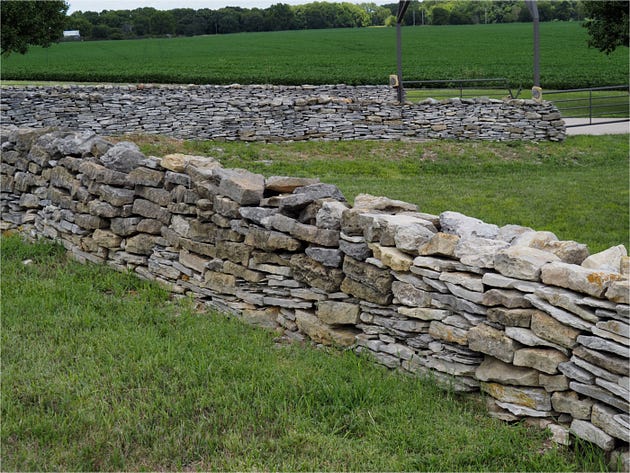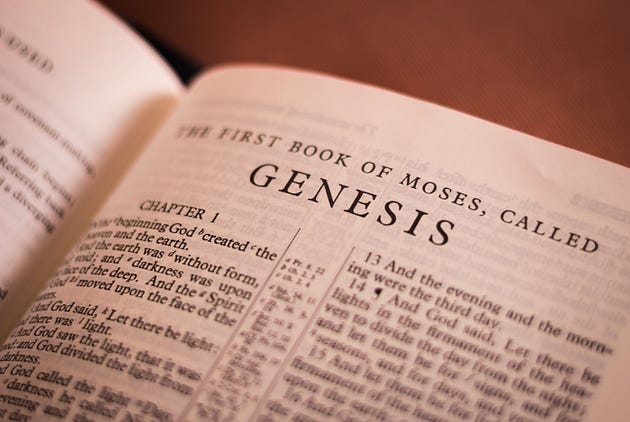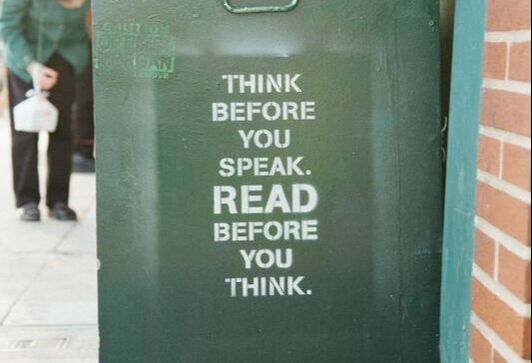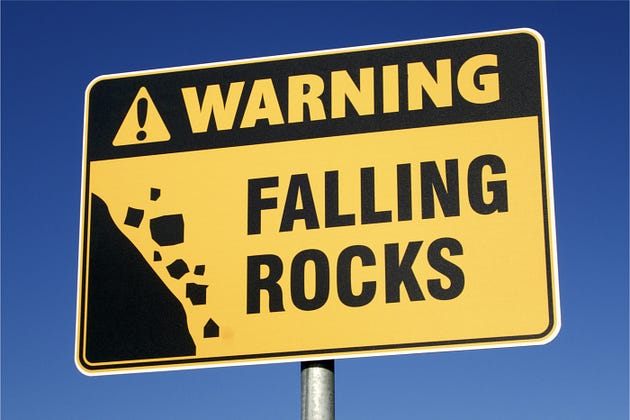For many, this boils down to a simple change of opinion on a few topics, primarily political or social — rarely biblical in nature — and the central tenets of historic Christianity are left intact. That’s not deconstruction to me; it’s simply changing your mind.
For some, deconstruction is more of a transition of beliefs, either doctrinal or practical — think, a Baptist becomes an Anglican, a Catholic goes non-denominational, or any other scenario. It has changed, sometimes pretty significantly, but orthodoxy is untouched.
Still, for others, the comfort of orthodox Christianity is abandoned in favor of beliefs that many would regard as heretical — though the “h-word” is more often than not thrown around too liberally and usually baselessly.
After going through deconstruction, some formerly devout Christians even opt for various forms of atheism and agnosticism; some have even adopted beliefs that are more in line with Buddhism or other eastern religions.
Regardless, it’s rare that a Christian goes through deconstruction and ends up back at the starting point.
My Deconstruction: The First Stone
I didn’t know it until I heard the term a couple of years ago, but I’ve been deconstructing my faith for a while — more like demolishing, really.
It all started on a Monday evening at
Huntsville Bible College back in 2010. We had to attend an eschatology conference as part of the requirements for a course on the Book of Daniel. The course was taught by an Assembly of God professor, so the content was from a dispensationalist perspective.
Being a Southern Baptist kid who was theologically weaned on Left Behind, you can imagine my shock when the speaker, the late Rev. Dr. Wayne P. Snodgrass (an amillennial Baptist), uttered these words: “I don’t deal with the rapture because the Bible doesn’t deal with the rapture.” I didn’t realize it then, but …
that’s when the first rock fell.
A Stonemason
I’m a stonemason. I have been for my entire life. My dad was one (the best in the South), and I’ve worked with him since I was 14 — and professionally for 10 years before becoming a teacher (and on the side now even though he is technically retired). I am very familiar with this idea of “deconstructing.”
A structure is not what it used to be; perhaps it was damaged by an external factor or had settled over the years — meaning it was outdated and could no longer function as it once did — so it needed to be taken down.
My dad, brothers, and I would handle stuff like this all the time: An old fence built by slaves or Irishmen in the 18th or 19th century was falling apart, so we were called in to repair it or repurpose the stones; an old chimney stood tall with the shell of the burned house collapsing around it, so we were asked to come in and take down the chimney to preserve the stones.
 |
I can’t even guess how many days of my life have been spent reconstructing old fences like this. In fact, when I saw this image on Shutterstock, I genuinely thought for a moment that it was a job I had worked on. |
When we take apart these old stone structures, a few things happen:
- First, we assess the structure to see how we should approach it so the process (1) is safe and (2) will preserve the most stones.
- Second, we examine each individual stone as we remove it to see if it goes in the “keep” pile or “discard” pile — all structures have at least some keepers, and some keepers are so good that they get their own pile.
- Third, we move the pile of keepers to a new spot and prepare for the reconstruction phase — or storage phase, depending on the owner’s needs.
Sometimes, stones in the middle fall out, and the structure is wobbling like a Jenga tower. Just a little pressure will cause it to collapse, so it is often best to safely push the whole thing down and sift through the pile of rocks on the ground.
Back to the Conference
That’s what happened to me at the eschatology conference back in 2010. My rapture stone was knocked out of the structure of my faith, which I thought was a strong tower; alas, it was a brittle post.
The problem: That stone was smack-dab in the middle, and my structure was now rocked (pun unintended), swaying back and forth and waiting for the next rock to fall out before, eventually, collapsing.
I pulled a Dante; I got on my ship and set sail on a journey for truth — though my goal was to find “truth” that fit my beliefs and proved Dr. Snodgrass wrong, so it was really more of a journey for vengeance. I searched far and wide for proof he was wrong. I examined the stone to see if it really was what I thought it was.
Well, as my stone structure was a brittle post, my ship was a plywood raft with a torn table cloth as the sail. I set sail into territories my childhood faith had me ill-prepared to encounter.
What did I learn?
- First, the rapture isn’t accepted by all or even the majority of Christians (that surprised me — I really thought it was the only option).
- Furthermore, the rapture was invented by a dude (John Nelson Darby) in the mid-late 1800s; I was never told that in church growing up, and Tim LaHaye never brought it up.
- Finally, I learned that the rapture isn’t even in the Bible. Talk about rocked! (pun intended that time)
Discovering on my journey that there are dozens of passages in the New Testament in which Jesus, Paul, Peter, James, and John believed the so-called “second coming” would occur within the lifetimes of many living in the first century AD really rattled my orthodoxy.
My church leaders conveniently skipped over those passages — while skipping over Josephus and the destruction of Jerusalem in AD 70, which was a pretty significant event — or reinterpreted them to fit their belief system.
Then studying the symbolism and imagery of apocalyptic literature in the Bible, as well as the symbolism of the Temple, the New Heaven and New Earth, and my reinterpretation of the early chapters of Genesis, forced me to re-examine what would really transpire at “the end.”
 |
I grew up believing that something like this was going
to happen to Earth — and probably in my lifetime. |
My conclusions now are completely different from what I was raised to believe. In a nutshell, I believe the New Testament teaches — and history reflects — a completion of the prophetic clock in the Bible: We are in the Kingdom of Christ; the Savior has come and has indwelled his people. This is it, and that’s fine — we are still a Kingdom that should strive to make the world a better place that is more aligned with the core truth of the Gospel. Even if God does have a plan for the future (I don’t really think he does, but I digress), we don’t need to worry about it and would probably be better off if we acted like there is nothing on the prophetic horizon — it gives us more ownership and responsibility for the world’s problems.
As I said, I don’t believe how I was raised to believe, but even if I had come to the same conclusions, on my own, I still would have been pissed. Why would they hide such a treasure trove of theology from me? Were they scared?
I then thought, “What else did my church leaders hide from me? What else about my faith is wrong, or at least incomplete?”
Starting Over
That’s where René Descartes comes in. He said in A Discourse on the Method, and I paraphrase, to never accept anything that was not introduced there by reason. I realized that I didn’t really believe anything I thought I believed; I simply accepted what I had been taught and didn’t question it. I never gave any of the ideas and doctrines time to say I believed them. I simply signed the dotted line on the statement of faith and moved on with my faith.
Descartes also said to erase everything you have been taught so you can examine everything, individually, without the distraction of assumptions. That’s hard to do. But as Isaac Asimov said,
“Your assumptions are your windows on the world. Scrub them off every once in a while, or the light won’t come in.”
I started scrubbing and declared to myself, “You know what? I got a little time — I got my whole life to figure this out. I’m gonna push the whole thing down and see what survives.”
It was a mess at the beginning — rocks everywhere! But I had a hammer and chisel and a little experience, so I started chipping away one at a time. It’s hard to describe just how many stones are in a structure, and they all play an important role, but some are more important than others …
Filler Stones
Growing up in the buckle of the Bible belt meant that everyone around me was a Christian. In Lynchburg, where I grew up and still live, people typically are either Baptist or church of Christ. We even have some who are called Baptist Church of Christ since they can’t make up their minds (actually, they are unrelated to the restoration movement and are their own thing, but that’s irrelevant to this specific post).
Beyond Baptist and church of Christ folk, there ain’t much. We have some Methodists, of course, but I didn’t know a Presbyterian church was in Lynchburg until I was in my late 20s, and the only Pentecostal church nearby is about a quarter mile into Lincoln County (instead of Moore, where Lynchburg is). I’m assuming they set up shop there so people wouldn’t think they were just drunk on the local product (Jack Daniel’s). Not really. They are great people — just hyper.
Anyway, living here meant that Christian faith was a part of every day life, not just a Sunday gathering. In high school, my friends were either lukewarm Baptists or church of Christ zealots. I remember riding on the school bus to and from baseball games; we would pass the time by having theological debates. I, a Baptist at the time, would argue with my church of Christ teammates about issues like whether music should be used in church, if communion should be weekly, or if one must be baptized to be saved.
One thing I concede now (but wouldn’t even consider admitting then) is that they were far more prepared to defend their beliefs than I was. I held my own because I always find a way, even if I’m knowingly BS’ing. But it’s like their “elders,” as they called them (we even argued the terminology of pastor vs. elder), would hold a weekly class dedicated to debating Baptists — or at least knowing church of Christ doctrine inside and out. It made sense because most of them believed they were the only ones who had the truth and a one-way ticket to Heaven. I don’t think (I hope not) many believe that way anymore.
Those issues are now trivial to me. So when I knocked down my structure, those stones were placed in the “deal with later” pile. Sure, they are important (all doctrine is), but they didn’t seem as important to me when I decided to grab a hammer and chisel and really get my hands dirty with this deconstruction thing. They almost seemed irrelevant altogether, like the filler stones we use when we are building something — little stones used to fill in gaps. They have to be there, but they don’t seem as important as the ones out front for all to see, or those on the foundation.
I have ideas and thoughts about these doctrines now, but I wouldn’t have these ideas without spending more time with the other, more important stones. Other stones in this pile include things like women in ministry (I’m all for it, for the record), drinking alcohol (yes, that’s an issue even in whiskey country), Calvinism vs. Arminianism (I think both are annoying), and other issues commonly debated in the church today — to no avail.
The Second Stone
The second stone that really challenged me — on the same level, if not higher, than the eschatology stone — was the origins stone. It seemed natural and appropriate: I examined the end; now I must examine the beginning.
Just as Left Behind shaped my eschatology, Henry Morris and creation “science” shaped my view of origins. The idea that God created the world in six literal days was not something I thought was even debated in Christianity — in the academy, the Church, or anywhere else.
The only ones who disputed that truth were the atheistic evolutionists. Evolution was simply a tool of Satan and a conspiracy by atheist scientists to discredit God. That isn’t what I believed; that was reality — there wasn’t a chance to disbelieve it. The same goes for Noah’s Ark, Adam and Eve, etc. I was taught that to deny these ideas was to deny God.
I didn’t question these ideas until I really read into them.
Promises
There used to be a Christian bookstore in Lynchburg that was owned by some friends of mine (and people I went to church with for several years). It was called Promises. I would go in often as I was a single guy then; I was probably 18 or 19 and was starting to accept the “calling” to ministry.
I would check out all the study Bibles (and buy some). I would check out some of the theology books. Mostly, I would take a “Moses” staff they were selling and pretend to be Gandalf. “You shall not pass! … unless you accept Jesus Christ as your lord and savior” is probably something I would have said at that point in my life.
Like most bookstores, especially Christian ones, Promises went out of business. I left that store for the last time with some goodies: the Gandalf staff (I figured it was fate, and it still sits in my classroom, ready to be used to tell students that “they shall not pass”) and three study Bibles — the NKJV Chronological Study Bible, the NIV Archaeological Study Bible, and, most notably, the New Defender’s Study Bible by Henry Morris. I started digging …
After thoroughly studying Henry Morris’ study Bible, especially its essays, I thought, “What the heck is this crap? Why does my church believe this?” I discovered that young earth creationism (the viewpoint I thought was known as simply “biblical”) is very weak. Here is Henry Morris, the Father of Young Earth Creationism, and he is forcing everything he needs to support his belief.
I can’t remember the details, and I’ve since given the Bible away (on accident — I wish I still had it), but I remember sitting on my bed late at night, reading his essays, and thinking that Morris had a very desperate tone. He didn’t come to conclusions, either biblical or scientific, because the evidence took him there; he came to conclusions because he had to.
 |
This part of the Bible causes a lot of problems for Christians, especially
if they get involved, in any way, with the science vs. religion debate |
I decided to ignore origins for a while as I was about to begin Bible college. So this stone, although loosened a bit, was still in some way intact for a while — I hadn’t thoroughly examined it yet.
Fast forward a few years … after my rapture stone was knocked out of place and I decided to examine everything …
I eventually came back to origins. I first dipped my toes in science. I had never given evolution the time of day. We were told to ignore our science teacher, and some of us even rebelled by answering incorrectly (on purpose) any question that had anything to do with the Big Bang or evolution. But when I was older and had no pressure to ignore it, I was able to examine it without fear of it conflicting with my faith.
What I found shocked me: The “science” I was taught in church did not match the science taught by … well, actual scientists. And these scientists weren’t only atheists and anti-Christians as I had been taught; many were Christians who believed in a creator God. And they followed evidence instead of fabricating it. I knew that, once again, my childhood leaders led me astray in an important doctrine, and I had to go back to the biblical text to see what went wrong.
At this point, I was aided by scholars like Leland Ryken and John H. Walton, among others. Ryken opened up the world of biblical literature to me. I was a literature guy: I studied Tolkien, Middle English literature, poetry, and science fiction. Literature was (and is) basically “my thing.”
However, I approached the Bible with the assumption that it was written in a vacuum — that it was written by God himself and unlike anything else ever written. These guys helped me see that it was not; it is literature — ancient literature, even if it is inspired by God. And this ancient literature contains literary devices and styles that are not used anymore.
Therefore, I (and apparently my church leaders) missed them. We interpreted Genesis 1 (and 1–11) literally because (1) we, like I said, assumed that the Bible was written in a vacuum, and (2) we didn’t know what type of literature was actually present in the opening chapters of Genesis.
Following rabbit trails helped me discover the literature of Genesis. One of the first literary topics I discovered (from Walton’s Lost World series especially) is also something completely avoided by most evangelical churches: ancient near eastern literature.
You’ll never hear those words in a Southern Baptist church.
Why?
It scares them
There are too many similarities between ancient near eastern literature and biblical literature, and the dates and geographic locations also make them too connected for comfort. They wrote about their gods in similar ways, and they used many of the same literary styles.
I started to realize that the Bible is not a book of science. The Bible’s science does not match reality. But with the assumption that God wrote the Bible still deeply embedded in my emotions (albeit not in my intellect), that was a problem.
I knew that young earth creationism was bogus; I knew that I really couldn’t even fit modern science into the Bible without some extreme gymnastics, as performed by men like Hugh Ross. There had to be another way, a way that took both the Bible and modern science seriously.
Publishing
At this point (late 2019-early 2020), I started McGahan Publishing House, and I was looking to publish a book on Christian faith and science. I emailed Loren Haarsma, husband to Deborah Haarsma (president of BioLogos), and he referred me to someone who seemed too qualified for my new publishing company, but it worked out for us.
Denis Lamoureux has PhDs in theology and biology — as well as dentistry. As a trained theologian and biologist, he seemed like the perfect prospect for a book on religion and science. With his academic credentials and publishing history — several books by notable publishers, such as Zondervan, and dozens of academic articles — I assumed he was out of our league as we still had not published a book at that point.
But Denis and I hit it off, published two books, including
this excellent one, and have plans for more. He liked our independence, both professionally and intellectually — we are free to explore ideas that frighten other publishers, such as the Adam and Eve story not being literal history. Publishing his work and having conversations with him have enabled me to spend even more time examining the origins issue, form connections with others in the field, and discover other thinkers and ideas in science and religion.
This led me to solidify the stances toward which I was already leaning:
- Evolution is true - like it or not.
- The global flood of Noah never happened.
- The earth is billions of years old.
- Adam and Eve were most likely not the first humans on the earth — if they even existed.
- The Bible is not a book of science.
But that’s okay, for the Bible still reveals a God who wants to commune with his greatest creation and image bearers.
And that’s what matters — having a spiritual life in which a personal relationship with God is the most important goal of a Christian.
The Third Stone — God
I thought I had it all figured out. I had the end figured out; I had the beginning figured out — the rest would fall into place. Then, at the bottom of the pile of stones sat the most important stone of all …
I thought this one was safe, but it wasn’t. It was a major stumbling block for me.
When I encountered the cornerstone during my deconstruction, it was during the height of the Covid-19 pandemic, and …
I started thinking a lot more about pain, suffering, and death. I wasn’t scared of dying from Covid. I was relatively low-risk, and I had it — twice. I had the OG Covid before being vaccinated and then the omicron variant after being fully vaccinated. They were both very mild for me.
However, I noticed the people who had different experiences. I saw people I care about die from it. I saw friends and acquaintances lose their spouses, parents, cousins, and grandparents. I heard about children dying from it.
That made me think about death and suffering regarding more than just Covid.
I started thinking about the 6-year old boy who drowned while on a family vacation in Florida.
I started thinking about the poor kids (in America and around the globe) suffering from hunger and extreme poverty.
I started thinking about the innocent children at St. Jude’s suffering from cancer.
I started thinking about the child victims of mass shootings.
I thought about the 12-year old boy who committed suicide because he was being bullied in school.
I started doubting God’s involvement in the world.
There is no doubt that the little 6-year old’s family was praying for a miracle, yet his lifeless body is what they found.
There is little doubt that impoverished families across the globe pray for God’s hand to intervene and feed them, yet he never comes.
Parents spend hours at the chapel altar praying for their child who has cancer, only to plan a funeral a few weeks or months later.
Every time I see a tragic story of a child or innocent person dying or suffering for no reason, I get angry. I get sad, and I sometimes cry when I’m alone, partly because it goes against everything I’m supposed to believe about an all-loving God, and partly because I project all of that suffering onto my own family and children.
I project my wife onto the young, vibrant woman who dies from Covid.
I project my children onto the little boy and girl who just lost their mommy or daddy because the ventilator malfunctioned.
I project my son onto the little baby at St. Jude’s who has no hope of survival and is suffering for no reason.
I can’t help but to think about my 6-year old daughter when I hear about the 6-year old boy who drowns — all alone and scared.
I ask, “Where are you, God?”
Where is God? Why can he not do more? And if he can, why doesn’t he?
The young parent of two little girls who dies from Covid because the ventilator malfunctioned — why couldn’t God prevent that from happening? No one would have known because no one thought it was broken. It was SUPPOSED TO WORK.
Why does the innocent boy at St. Jude’s, who just loves Batman and Iron Man or trucks and tractors, have to get cancer in the first place?
Why can’t God, with barely a movement, rescue the 6-year old? No one would know he did it — he wouldn’t be exposed.
Why can’t he drop some manna from Heaven to the impoverished families? Did he not do it for the Hebrews in the wilderness?
Why can’t God make a gun jam before a deranged person kills innocent children? Gun jams happen without God’s intervention!
It makes no sense. Lex Luthor seemed to be on to something:
If God is all-powerful, he cannot be all-good.
If God is all-good, he cannot be all-powerful.
Sometimes, I think I understand it, or am at peace with it, but then I just hear about someone else, someone innocent and beautiful, who dies or suffers for no reason — and with no “god” to help them. And many of these are Christian people who are suffering, people who are called “his children.” No father would let his children suffer if he had the power to step in.
I felt myself drifting toward atheism.
I didn’t like that feeling. I had devoted so much of my life to preparation for ministry. I have lived my entire life with my Christian faith as the most important thing. Giving it all up would have huge ramifications. At one point, some felt that I had a bright future in Baptist ministry. And what would it do to my family? I couldn’t even consider that. Maybe I’ll just lie about it, I thought.
I didn’t know of another way. I didn’t think there was a type of theism, especially Christian theism, that would accommodate my doubts.
Then I realized …
What if it’s not God I’m angry with, but the version of God I was raised to believe in?
I noticed that the cornerstone was the toughest of all. My chisel and hammer made some markings on it, but I couldn’t break it. It was chosen as the cornerstone for a reason — it’s tough; it’s strong enough to withstand the mightiest of strokes, and I was swinging my hammer as hard as I ever have. However, my strikes were unable to break the cornerstone because …
The stone I was striking didn’t really exist.
God is not confined to the worldview within which I framed him. My assumptions about God were assumptions I didn’t erase before going on my journey. The fog was still there.
What if we are misinterpreting God altogether?
What if God is something much different than what is defined in typical statements of faith?
What if God is something, someone much more personal?
What if our interpretation of God depends on our view of origins, or our eschatology?
What if Christian theology is a huge mess, and our idea of God is just as messy as anything else?
The idea that a transcendent, omnipresent God is out there intervening in the world, answering prayers, and unfolding a plan just simply does not match reality. There is no evidence to suggest otherwise.
But people, myself included, still experience God! What do we make of that? Human experience should matter. And in my experience, God is there; God is real. He might not intervene in ways I used to believe, but …
- he inspires people to do great things
- he brings people together.
God is not without; he is within. God is not an outside force that acts for people; God is a force that acts through people — the people in whom the Spirit of God has dwelt.
The New Structure
None of the options worked for me. I was at the stone supply shop, and none of the samples fit what I had going on. And with my OCD, I had to have something — a theological system that works.
So, I decided to take my stones and build my own.
A new system that makes sense to me …
With my faith structure, I would hold myself accountable: If the world around me isn’t improving, I can blame only myself.
Instead of choosing to see God in the disaster, I choose to see God in the relief — through his people working in God’s name to help those in dire need.
Instead of praying for God to act from the outside, I pray for God to activate me from the inside.
If I can’t change the world, God can motivate me to change someone’s perception of the world. That is often as simple as saying, “Hello! How are you?” It is often as simple as giving someone a sandwich.
That should be what Christian faith is all about.
And then, I discovered some Christian thinkers I had heard about but not really given the time of day: open and relational theologians — men like Thomas Jay Oord, John Cobb, and others.
They believe and teach basically what I believe and teach, especially the parts about how God interacts in the world.
They believe in God and experience God in their lives, but they understand that life sometimes sucks, and although God doesn’t intervene as an outside force to make the world better, he does indwell us and encourage responses from us that will make the world better.
They believe and teach that though prayer does not change the circumstances around us, it does change us.
And I can work from that.
That’s where I’m working from now — using what I have learned biblically, experientially, and theologically to develop this system into something that works for me.
And I think it’s gonna work.
For the first time in a few years, I can honestly say something I wasn’t confident I would ever again be able to say …
I can still be a Christian.











